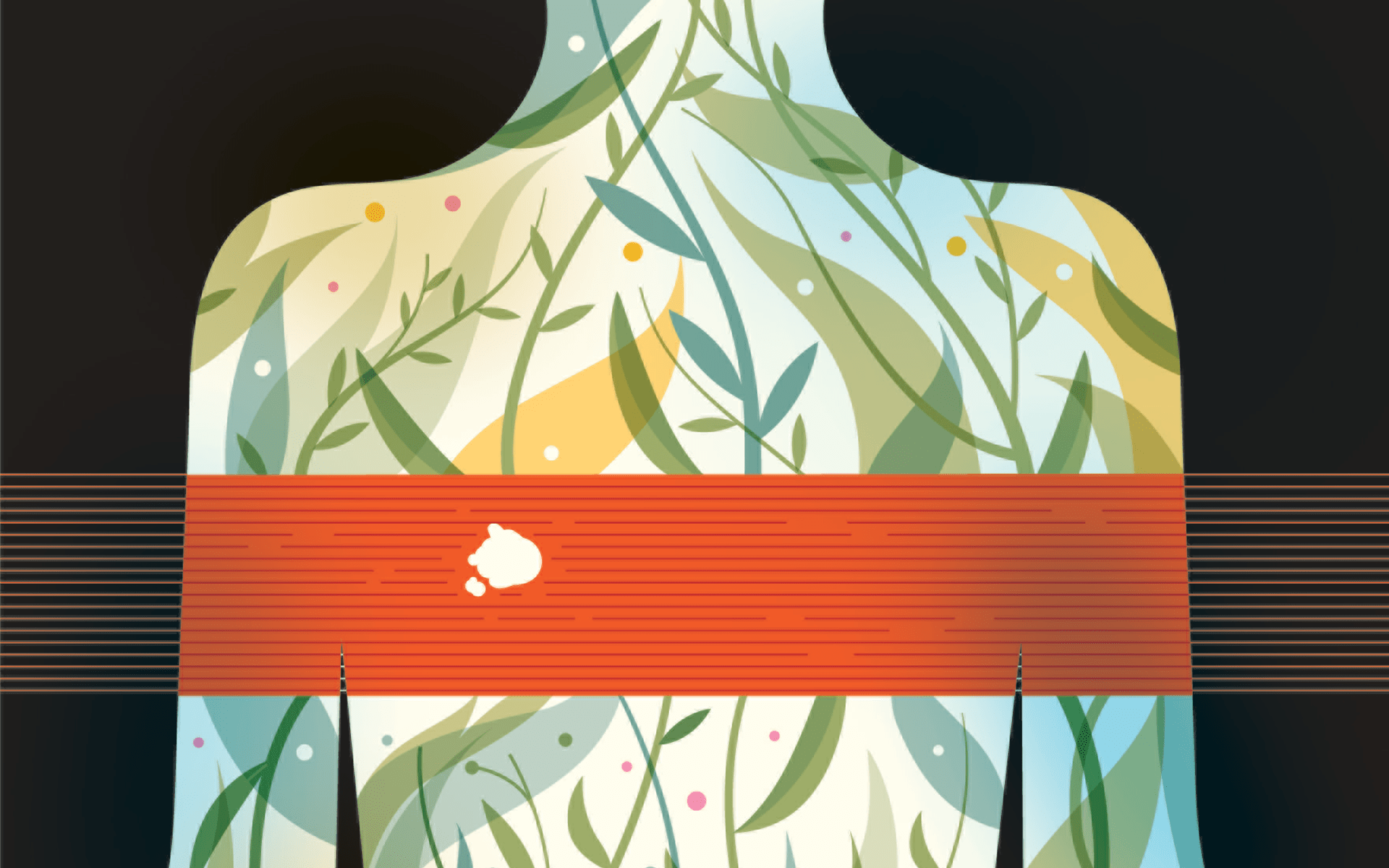Catastrophic illnesses like cancer terrify us. You could argue, given their frequency, they should—although I have never found anxiety or worry to be particularly helpful in solving anything.
Every year, 250,000 women in the US learn they have breast cancer, and 1 in 9 women will be diagnosed in her lifetime. Each year, a staggering 12.7 million people worldwide receive a cancer diagnosis. Everyone will be affected by cancer at some point, either themselves or through caring for a loved one. So it wasn’t really a shock when the yellow crusting on my nipple turned out to be a malignancy that had taken up residency in my breast.
Even so, initially I was devastated. My life was about being up north in the woods, picking growing things out of the garden. It was about teaching and traveling to the ocean, about exploring faraway countries with my husband and family, about learning and giving to others. My life was not about breast cancer.
Author William Bridges developed a model of change and transition that has helped me negotiate everything life brings. In his model, change is often external, instantaneous, and whether wanted or unwanted, it brings endings, loss: marriage, divorce, retirement, or the death of a spouse or child. Transition is the slower, internal process of adaptation to what is. I have found Bridges’ approach useful because it speaks to the impersonal nature of experience, its universality and temporal nature. Life isn’t fair and everything passes. Instead of asking, “Why me?” when difficulties arrive, we can say, “Why not me?” And then we can begin to move toward acceptance and decide what to do next. This is mindfulness in action.
Bridges begins with the “old familiar,” which refers to our lives meandering in ways we recognize, changes occurring incrementally, perhaps even out of awareness. And then something ends. Maybe you find a lump in your breast, or (as in the case of my friend who had given up breast feeding long ago) you develop a case of mastitis that wasn’t. Change throws you off a cliff into the unknown.
Then, when you fall into the role of the sick, you’re pitched into the no-man’s land of transition. We may get stuck in our resistance to what life is throwing at us, becoming sad, guilty, resentful, anxious, or just generally stressed. We try to hang on to what we were just a moment ago, like being a healthy two-breasted woman. This is also when you hasten to reestablish control in what are often uncontrollable situations, like when I bought a $500 breast prosthesis before I even knew what surgery I was having. It remains in a drawer, as a reminder that not everything is urgent, even when you have cancer. Or like when I dropped a nonrefundable deposit of $1,200 on a wig because I had some notion about passing as healthy once my hair fell out. I hated it. My friend said it looked like a head warmer. This was a lesson in letting go. Bald during chemo actually became beautiful, and I crowned my head with henna.
Cancer is a process, and the practice of mindfulness, while not a cure, can help everyone navigate the journey, wherever it leads.
Cancer is a process, and the practice of mindfulness, while not a cure, can help everyone navigate the journey, wherever it leads. Remember, there is much we can do to help ourselves and others through such difficult times. We can welcome the opportunity to live vividly, one breath at a time. Slowing down can allow us to see what actually needs addressing and what can wait. Seeking knowledge, to understand what is happening and to make informed decisions, is invaluable. Lastly, make sure you have support and make a plan so you can take care of yourself and those around you, however rough the road ahead.

Mindful Medicine for Cancer
If your diagnosis feels overwhelming, it’s useful to slow down and assess what actions can help you through it.
Inner work
When you can, accept what is happening without resignation. Riding the waves of low energy or appetite, nausea, pleasure or pain, irritability or contentment, sadness or joy awakens resilience. Staying mindful of our thoughts can prevent a spiral into a catastrophic future. The body is the boss, so you have to go with the flow. Well, you don’t have to—but then you suffer more than you already are.
Learn ways to nourish yourself—by drinking smoothies when your appetite’s gone or taking nausea medication. Losing your hair can be an adventure as well as a fashion statement—hats, scarves, henna, makeup, or nothing. When fatigue shows up, rest or ask for support.
Outer work
Do your research around cancer treatment options. If you aren’t up for that, ask someone you trust to do it. Slow down when you can around decision-making. Move your body: Run when you can; walk when you can’t. My oncologist told me that those who exercise before, during, and after therapy respond much better to the whole process.
Especially when we are sick, community is better than isolation. People want to help. Designate a family member or friend to coordinate a schedule for cleaning, gardening, driving, or cooking. Send out regular email updates on your condition so you can avoid retelling the same story. Illness is a part of life. We don’t need to hide it.



